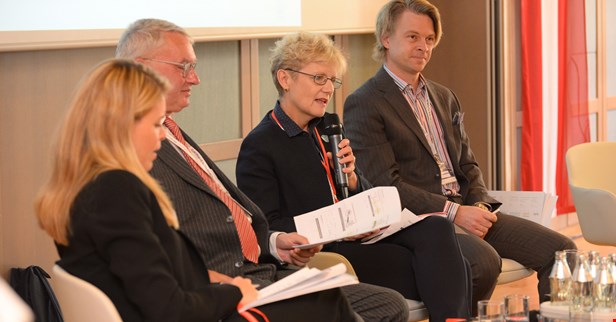European Health Forum Gastein 2017: A Better Future For Patients?
 ©EHFG
©EHFG
For its 20th anniversary, the European Health Forum Gastein (EHFG) focused on “Health in All Politics - a better future for Europe”. EPF was invited to present the patients’ perspective on numerous key topics, advocating for health literacy and equitable access to medicines.
It is now common habit for health stakeholders to gather in the picturesque town of Gastein, Austria, for one of the major get-together of the EU health-related environment, bringing together representatives of NGOs, pharmaceutical industries, national health systems, and high-level politicians.
Here is in a nutshell our take from the many discussions which took place over the three days.
“Health literacy in all politics”
Future healthcare will need to take into account demographic changes, chronic diseases, the emergence of public health genomics, and digital health. Patients will have to play a more central role in decision-making. Whilst the importance of health literacy is increasingly recognised, it has not yet become an integral part of health policy or healthcare practice.
The panel discussion called for a cross-sectoral approach to promoting health literacy, while our Director of Policy Kaisa Immonen pointed out the strong contribution of patient organisations in conveying often complex scientific information to their patient communities in a health literacy-friendly manner.
“Exploring the threats and opportunities of health inequalities”
EPF Secretary General Nicola Bedlington participated in this session organised by the Ministry of Health and Welfare of Taiwan together with the London School of Hygiene and Tropical Medicine. Despite progress in life expectancy and health status, inequalities persist both across and within countries. Nicola called for a further collaborative spirit and for all stakeholders to step up and recognise their responsibility and role in tackling inequalities. The United Nations Sustainable Development Goals are an important backdrop here, and “particularly the target on universal health coverage, which in EPF’s view is a prerequisite for delivering on other goals such as child mortality, poverty reduction and gender equity.”, Nicola said.
Better synergies for health – the role of civil society
Lastly, Kaisa contributed to a session organised by the European Observatory on Health Systems and Policies, on the role of civil society in drawing better synergies for health. She argued that the added value of patient organisations’ involvement in policy is not made visible enough, and there are specific barriers patient organisations face that may not touch on other civil society organisations, for example when their representativeness or credibility as public health stakeholders is questioned, which still happens occasionally. The workshop concluded that success in engaging with civil society requires first accepting the value of engagement, and then implementing concrete strategies to tackle the specific barriers.
For webcasts on all the sessions, please visit https://www.ehfg.org/.
Contact person: Kaisa Immonen, Director of Policy, kaisa.immonen@eu-patient.eu
